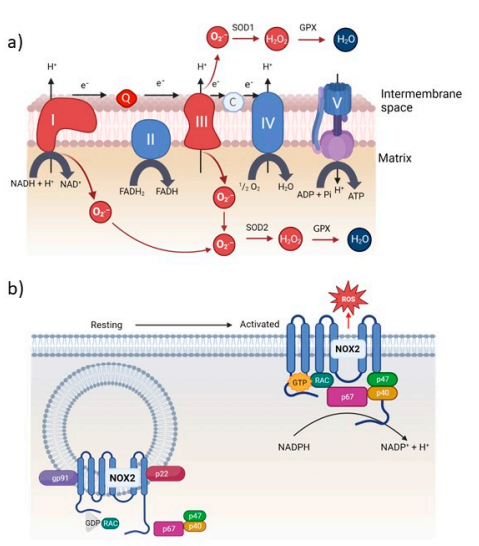Reactive Oxygen Species (ROS) production in the gut is a double-edged sword: on one hand, it is an indispensable mechanism in the defense against pathogens and mucosal healing. On the other, excessive ROS production can have detrimental effects on mucosal integrity and epithelial barrier function. The gut microbiome, under physiological conditions, has a balance in its pro- and anti-inflammatory mechanisms. This balance is maintained by microbiota influencing the Oxidation-Reduction (REDOX) system. Commensal bacteria often exhibit anti-oxidative properties and suppress inflammatory reactions. Pathogenic microbiota induce inflammation and shift the REDOX balance toward a pro-oxidative status. Therefore, the interaction between intestinal microbiota and host’s cells, especially the immune cells, is crucial in maintaining REDOX equilibrium and suppressing undesired inflammation. Authors in this study discuss how oxidative conditions in certain intestinal diseases can be counteracted by the enrichment of bacteria with enhanced anti-oxidant activity. Thus, the modulation of individual microbiome will be an important issue regarding future therapy for gastrointestinal disorders, cancer, and other diseases.
Link to the article : bit.ly/42tH3cV
Published On: /05/2023
